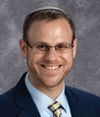The Rabin Assassination and the Imperative of Civil Discourse Today
Watching the tempestuous political debates in the Jewish community mirror the fevered pitch of pre-election discourse throughout the United States, it occurs to me just how appropriate it is that Yitzhak Rabin’s 25th yahrtzeit falls out during these heady times.
Today’s environment is not dissimilar to the tenor prior to the Rabin assassination in 1995, when debates regarding the peace process reached a fevered pitch. Segments of our community are engaging in a searing process of self-examination regarding the so-called evangelization of Orthodoxy, dubbed by some as a process of assimilation. Many have called out their fellow Jews for sacrificing their ethical souls on the altar of short-term political gain. Others are terrified by the direction of the liberal wing of the Democratic party, especially as it concerns Israel policy. The high-profile representation of Orthodox Jews in the current administration only exacerbates the tensions on all sides. Basic questions as to where different segments of the Orthodox community actually stand politically remain unclear and subject to dispute. Things are heating up, and we don’t yet know whether they will simmer down or boil over in the days to come. Add to this the stresses of a pandemic with no end in sight, the anxiety surrounding the possibility of a contested election, civil rights unrest in cities across the country, and the most explosive political environment in decades, and it feels like we are standing on a powder keg.
The common denominator with the Rabin era is as logically straightforward to grasp as it is emotionally difficult to live by: the tone and language of our discourse can leave an indelible stain on our community, and even lead to violence. How we argue amongst ourselves may well determine how well we recover when the dust finally settles.
Two of my heroes and teachers, Rav Aharon Lichtenstein and Rabbi Norman Lamm zt”l, addressed the distinction between responsible and irresponsible rhetoric in the wake of the Rabin assassination.
As part of a public heshbon ha-nefesh, in a summary posted on the Virtual Beit Midrash site, Rav Lichtenstein characterized the discourse in the Dati Leumi community surrounding the peace process:
Sometimes we taught our students to belittle and suspect others. One who doesn't agree with us is criminal, not merely mistaken. Any opportunity to credit a public leader with good intention was rejected in order to credit him with alienation, with hostility, with malice - not a suspicion of evil, but a certainty!
From this way of thinking, horrible things can result. The Sifre (Shoftim 43) to the verse, "If there be a man who hates his fellow and he ambushed him and rose against him and mortally struck him and he died," states, "Based on this, it is said: If a man transgresses a minor precept, he will eventually transgress a major one... If he transgresses 'You shall love your fellow as yourself,' he will eventually transgress 'You shall not hate' and 'You shall not revenge'...until he finally spills blood." From a sin of the heart, an attitude, from not enough love, Chazal see a straight path to the ultimate sin of murder.
In his eulogy for Rabin, Rabbi Lamm also pulled no punches. He put it this way:
Our responsibility is to be responsible, to recognize that violent rhetoric invariably leads to violent chaos. In the absence of such awareness, we stand accused of having prepared the ground for the explosion of such malevolence by people of weak restraint, like a sewer blowing its cover and uncontrollably spewing forth its odious ana miasmic gases.
Let us say it: we should never have permitted ourselves the luxury of escalating political differences to such heights of hatred-and such depths of depravity.
In at least one respect, things are even worse now than they were two-and-a-half decades ago. The Rabbis teach, “Hakhamim hizaharu be-divreikhem,” “Scholars - be cautious in your words.” Those who influence public opinion bear an additional level of responsibility for maintaining healthy levels of civil discourse. Why are only scholars responsible to be cautious? Midrash Shmuel cites a view that of course a hedyot is also responsible to be careful, but his words tend not to influence others in the same way as those of scholars. Utilizing this logic, in the internet age, we are all hakhamim so far as the logic of the Mishnah is concerned. We must all be especially careful to tone down our rhetoric and foster a healthy community dialogue, particularly when passions run so high.
Just like in personal relationships, in the heat of the moment, it is often not so much the substance of the argument but the way in which we argue that has the greater long-term effect. When the election is over and the dust begins to settle, where will we be left as a community? It has never been more important to emphasize the importance of civil discourse.
Toward the end of his 1967 sermon for Parshat Lech Lecha, Rabbi Lamm issues a call that characteristically is as relevant today as it was then:
One of our problems is that in our Orthodox communal controversies — and there is nothing wrong with controversy as such -- the level of our debate has not been high enough. We must get rid of the strident accents of our public discourse. We must do away with the bellicose posturing and the ubiquitous belligerence that have tended to corrupt serious dialogue within the Orthodox community.
On the eve of this most contentious of elections, we must all be responsible scholars. The aftermath of the Rabin assassination - and the searing pain already inflicted by all sides of today’s polemics - must move us to speak out in the name of civil discourse as never before.
